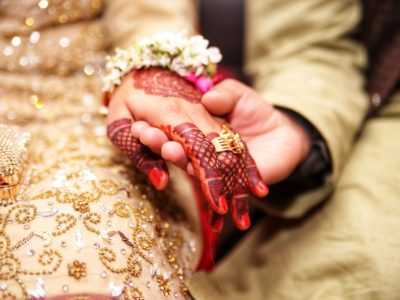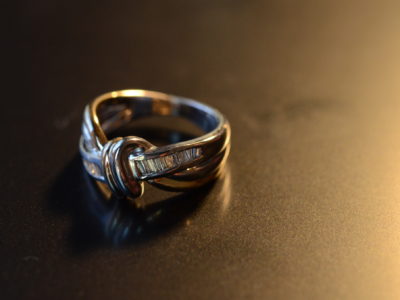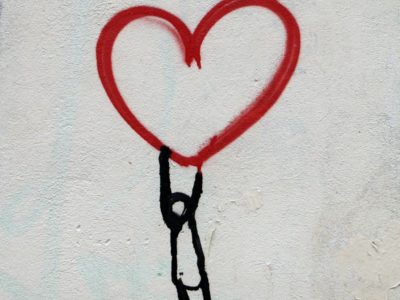Sometimes when I stare into a mirror for too long, I begin to forget that it’s my own reflection staring back at me. The person in the mirror feels like a stranger; her face is one I don’t recognize. The curves of nostrils, the delicate arc of her lips—none of it feels familiar. She isn’t ugly, but nor is she pretty. She is just a body, just another person.
My face—my true face, not the one in this mirror—is not owned by me. It’s held in the hands of those who look at me. My beauty in imprisoned in caricatures and standards I don’t have the right to question.
It makes me sick to think about all the eyes that will follow me today. Watching me. Judging me. I touch my collarbone, feeling the edges of the small crescent-shaped metal moon. By most Indian standards, this necklace isn’t beautiful or lavish enough for a bride. It’s much too simple, much too plain; but it was the first thing Arjun ever gifted me. I pat down the pillowy skirt of my lehnga, wondering if it makes me look fat. What about my make up—is it too heavy or not heavy enough?
I wish I could know what everyone would think, so I could prepare. That way I could ward off the worst of it before it truly began.
Dressed in a red lehnga and my hair veiled by a long, beaded dupatta, I feel less like a stranger and more like a creature from another planet. I am not this person. I am not a bride. I look too beautiful, too loved. Can it really be true?
I never pictured myself marrying someone when I was kid. Why would someone choose me when there’s always someone better? I’m not the girl the prince slays a dragon for. I am the ugly stepsister who saws at her feet until they are bleeding and raw because this is her only chance to win at love. She knows that without changing herself, she is unworthy of being desired.
“You look beautiful.”
I startle at the voice, turning away from the mirror to see who entered the room. Beaming with happiness, my fiancé’s mother wipes a tear from her eye. “You look so beautiful,” repeats Kamala.
Still lost in my feelings, I don’t say anything. I plaster on a smile that I hope conveys agreement, or gratitude at the least.
Kamala wears her hair in a stern bun, wrapped within an elegant jasmine garland. Her gold sari is draped with the crisp lines of an expert, showing a careful attention to detail. I want to tell her that she looks beautiful too, but my words fail me. My tongue feels too thick, too loose in my mouth; like everything inside of me, it wants to escape.
She walks towards me, and I want to cower, I want to tell her that I’m not beautiful, that she shouldn’t be crying, she shouldn’t be letting me marry her son. She looks so much like Arjun, it’s a little unsettling at times. It’s like looking into the warped version of the future where he is a middle-aged Indian woman. What would I be in that world? His husband? Or would he realize in that alternate universe that he is too good for me?
Kamala comes to stand before me, her face is filled with emotions I cannot begin to decipher: sympathy and joy, sadness and the pride of a mother. The look is different to any other in the world, it tells of nights spent awake wishing for your child to sleep, of mornings spent cooking so they go to school with a full belly. She sighs deeply. “I know your mother did not want to come today—selfish woman that she is—but I want you to know that you are my daughter now and I am so proud of you. I am so happy my Arjun found someone like you.”
I close my eyes. I want to sit down, maybe lay down and take a deep breath. Her words prick me, hurting me in ways she cannot begin to imagine. People always mean well, I’m sure of it. But I don’t want to be someone who needs sympathy. I don’t want to be someone’s daughter or wife. I don’t want to be anyone right now.
My heart is racing, pumping much too fast and much too hard. I feel sweat collecting at the bottom of my spine, running down the heavy pleats of my skirt. It must be leaving a big, dark, ugly stain. People will think I’m gross; brides shouldn’t sweat, they need to look poised and happy because this is the most perfect day of their life.
“Thank you so much, Kamala.” I hear myself saying, and I sound like I am underwater. Garbled and mushy, my voice is all wrong. “I think I need to go check on how the ceremony is being set up—”
“Oh, don’t worry! I will go do that! I will send Lakshmi up here when it is time for the wedding to begin.” Kamala smiled, proud of herself for showing how useful she is.
I watch her leave, wishing she would move faster. The clack of her heels on the floor grates on my nerves and a scream builds in my chest. I want to tell myself to get it together, to pull myself—piece by painstaking piece—into a facsimile of something presentable and get on with it. But I am cracking, breaking at the very core of my being.
I crumple to the ground, rolling into a ball on the cold hard floor. The lehnga’s beading pokes into my skin, and my dupatta—carefully pinned to my hair by the stylist—falls away, snagging my hair with it. I want my mother.
I want her hand touching my hair, pulling me into her lap. I want her laughing in my ear, teasing me out of my anxiety. Her soft voice telling me that I’m beautiful, that I’m going to be okay when her jokes don’t work. But that’s never been my mother. She is steel and iron, shaking her head at my distress. Or she is anger and spice, degrading me for my mistakes.
I’ve never had anyone to turn to, to hug and feel comforted. I am not a creature of love and beauty; I am ugly and corrosive. And today is a celebration marking what? Why am I here when my mother is not? Why I am here, loved, when she is not here, loving me?
“You’re marrying a Hindu?” She shrieked. Her eyes blazed with fury, her nostrils flaring the way they always did when I was a kid and she was about to slap me. “You expect to come into my home, the home you so happily walked away from, and offer me an invitation to your haram wedding? Daffa hoja! Get out of here!” She was spitting, foaming at the mouth, pushing me out of the door before I even had a chance to protest. She wasn’t even willing to listen to the crying plea of her daughter.
It wasn’t a home, I wanted to yell back. It hasn’t been for so long.
The floor begins to warm with the heat of my skin and I realize I’ve been crying. Giant, aching sobs rock through my body and I wonder where the love went. Where did love go when religion took its place?



















